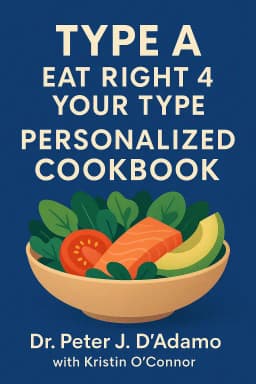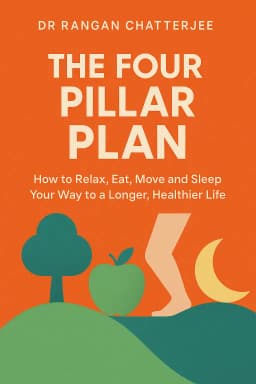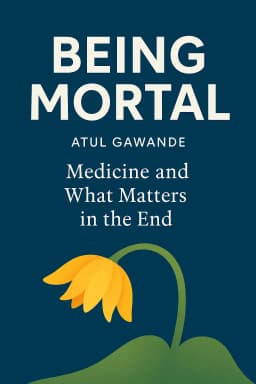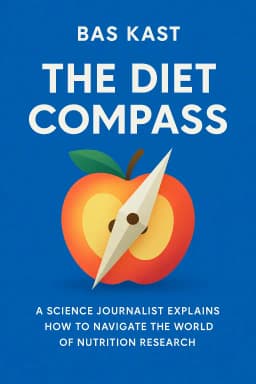
Personalized Podcast
Golden Hook & Introduction
SECTION
Nova: What would you do if your seven-year-old son was diagnosed with cancer, but the cure—the scientifically proven cure—felt more frightening than the disease itself? It's a terrifying question, but it's not a hypothetical one. It's the real-life dilemma that a family faced in the 1970s, and their choice set off a national firestorm that perfectly captures the battle between evidence and belief.
eck: That’s an incredibly high-stakes starting point. It immediately puts you in the shoes of someone making an impossible decision.
Nova: Exactly. And it’s the central question in Dr. Paul Offit’s book, Do You Believe in Magic?: The Sense and Nonsense of Alternative Medicine. It forces us to ask: how do we decide what to trust when our health is on the line? Today we'll dive deep into this from two powerful perspectives. First, we'll unpack the anatomy of a medical tragedy to see why we fall for false hope.
eck: And I'm guessing that story you mentioned is our case study.
Nova: It is. Then, we'll explore the 'Expert's Paradox'—what happens when a certified genius, a two-time Nobel Prize winner, leads millions of people down the wrong path. For someone like you, eck, who is fascinated by history and interested in nutrition, this book is a treasure trove of incredible stories and critical insights.
eck: I'm ready. It feels like a topic that's more relevant now than ever, with health information coming at us from every direction.
Deep Dive into Core Topic 1: The Anatomy of a Medical Tragedy
SECTION
Nova: So let's go back to that seven-year-old boy. His name was Joey Hofbauer. In 1977, he was diagnosed with Hodgkin's disease, a cancer of the lymph glands. The good news, if you can call it that, was that the treatment—radiation and chemotherapy—offered a 95 percent chance of a complete cure.
eck: Ninety-five percent. That’s an amazing number, especially for a cancer diagnosis in the 70s. That seems like a straightforward decision.
Nova: You would think so. But Joey’s parents, John and Mary Hofbauer, were terrified. They saw chemotherapy as a poison that would ravage their son's body. They wanted something gentler, something more… natural. So they rejected the doctors' advice and instead flew Joey to a clinic in Jamaica.
eck: Jamaica? For what kind of treatment?
Nova: For a treatment called laetrile. It’s a substance derived from apricot pits. The theory, which has been thoroughly debunked, was that it contained a compound that would target and kill cancer cells. It was the miracle cure of its day, promoted as a natural, non-toxic alternative to chemo.
eck: The 'natural' label is so powerful. It immediately frames the conversation as 'pure' versus 'artificial' or 'chemical'. I can see the appeal, even if it's not based on science.
Nova: It's a hugely powerful narrative. The case became a media sensation. The Department of Social Services charged the Hofbauers with neglect, trying to force them to give Joey conventional treatment. But the parents found a psychiatrist, Dr. Michael Schachter, who had no experience in oncology but was a true believer in laetrile. He testified in court that Joey was doing "superior" on this alternative regimen.
eck: A psychiatrist testifying about cancer treatment? That’s a huge red flag.
Nova: A massive one. And the story gets even more surreal. The judge, Loren Brown, was so moved by the parents' plea and the idea of this natural cure that he ruled in their favor. He wrote in his decision that he hoped this therapy was on the "first rung of a ladder that will rid us of all forms of cancer." He was essentially legislating hope.
eck: Wow. So the legal system validated the parents' choice to reject a 95% cure rate in favor of an unproven treatment based on apricot pits. That's a failure on multiple levels.
Nova: It is. And it was bolstered by celebrity culture. At the same time, the actor Steve McQueen, a global icon of cool, was dying of mesothelioma and publicly announced he was also seeking laetrile treatment in Mexico. His endorsement gave the movement immense credibility.
eck: Of course. If Steve McQueen believes it, it must have some merit, right? It's a classic appeal to authority, even if the authority is in acting, not medicine.
Nova: Precisely. But the science was clear. A major clinical trial was eventually conducted by the Mayo Clinic. The result? Laetrile did not cure, improve, or stabilize cancer. The patients on the trial died just as quickly as those who received no treatment at all. For Joey Hofbauer, the outcome was tragic. His cancer, which was once highly curable, spread. In 1980, three years after his diagnosis, he died.
eck: That’s just heartbreaking. He died from a treatable disease because a compelling story was more powerful than overwhelming evidence. It's a historical lesson that feels deeply personal today. You see this pattern everywhere—on social media, in wellness blogs. A simple, hopeful story versus complex, intimidating science.
Nova: And that's the core of it. The Hofbauers weren't villains. They were desperate parents who were sold a story that preyed on their deepest fears and hopes. It shows that good intentions aren't enough. But it's not just fringe healers who can lead us astray. Sometimes, it's the most brilliant minds among us.
Deep Dive into Core Topic 2: The Expert's Paradox
SECTION
eck: That’s a fascinating transition. So we're moving from someone with no credentials to someone with the best credentials imaginable?
Nova: The absolute best. I'm talking about Linus Pauling. This is a man who won two Nobel Prizes—one in Chemistry and one for Peace. He is, without question, one ofthe greatest scientific minds of the 20th century.
eck: Okay, so he's the last person you'd expect to be at the center of a medical controversy. This is interesting, especially from a nutrition perspective.
Nova: Right. In 1966, at age 65, Pauling got a letter from a man named Irwin Stone, a biochemist, who told him that if he took 3,000 milligrams of Vitamin C a day, he could live another 25 years. Pauling tried it. He felt more energetic, he felt healthier, and he became a convert. A true believer.
eck: So his personal experience, his anecdote, became his data.
Nova: Exactly. He was so convinced that in 1970, he published a book called Vitamin C and the Common Cold, which became an instant bestseller. He advocated for taking massive doses of Vitamin C—thousands of times the recommended daily allowance. He later claimed it could also treat cancer.
eck: And with his reputation, I imagine people listened. If a two-time Nobel laureate tells you to do something, you do it.
Nova: Millions of people did. Vitamin C sales exploded. He became the face of the megavitamin industry. But the medical community was skeptical. So, they did what science does best: they tested the claim. Study after study was conducted. The results were unanimous and devastating for Pauling's theory.
eck: Let me guess: it didn't work.
Nova: It didn't work. High-dose Vitamin C did not prevent or treat the common cold. And in a series of rigorous studies at the Mayo Clinic, it was proven to have zero effect on cancer. But it gets worse. The story doesn't end at "it's just ineffective."
eck: Oh no. Don't tell me it was harmful.
Nova: In some cases, yes. This led to the discovery of what's called the "antioxidant paradox." The theory was that antioxidants, like vitamins C and E, were good because they neutralized "free radicals," which are damaging molecules in our body. People who eat lots of fruits and vegetables, which are rich in antioxidants, do have lower rates of cancer and heart disease. So, the logic was, more must be better. Let's take them in high-dose supplement form.
eck: That logic makes intuitive sense. It's the foundation of a multi-billion dollar supplement industry.
Nova: It is. But when they tested it, the opposite happened. A massive study in Finland found that smokers taking beta-carotene supplements had a higher risk of lung cancer. Another study found men taking Vitamin E had a 17 percent greater risk of prostate cancer. It turns out our bodies need a balance. We actually use free radicals to kill bacteria and nascent cancer cells. When you flood your system with massive doses of antioxidant supplements, you might be disrupting that delicate balance and, paradoxically, suppressing your body's ability to protect itself.
eck: That is a stunning reversal. It completely upends the simple "more is better" logic that so much of the wellness world is built on. The idea that something "good" like a vitamin could be harmful in high doses is a much more complex and, frankly, scarier reality to navigate.
Nova: It is. And it shows the danger of relying on the authority of one person, no matter how brilliant. Linus Pauling died of cancer, the very disease he claimed Vitamin C could cure. His story is this profound, ironic tragedy about how a great mind can be led astray by a compelling belief, and in turn, lead millions astray with him.
Synthesis & Takeaways
SECTION
eck: So we have two incredibly powerful stories. One about desperate parents falling for a fringe cure, and another about a scientific genius falling for his own theory. They seem like opposites, but the underlying mechanism feels the same.
Nova: I think you're right. What connects them?
eck: It's the power of a simple, compelling narrative over complex, and sometimes counterintuitive, evidence. The Hofbauers chose the "natural cure" story. Linus Pauling chose the "more is better" story. In both cases, the story was more persuasive than the data.
Nova: Beautifully put. It's a reminder that we are all susceptible to this. We are wired for stories, not for statistical analysis. The book isn't arguing that we should be cynical, but that we should be critical thinkers. It's about building the skills to look past the story and ask about the evidence.
eck: It's about being a responsible consumer of information, not just products. It’s a form of self-motivation, really—motivating yourself to do the hard work of thinking critically instead of accepting the easy answer.
Nova: I love that. So, eck, to bring it home for our listeners who are trying to navigate this world of conflicting health advice, what's one key question you think we should all ask ourselves when we encounter the next 'miracle' supplement or health trend?
eck: Based on these stories, I think the question I'd ask is twofold: "What is the quality of the evidence being presented, beyond just one person's story or authority?" and, just as importantly, "Who benefits financially from me believing this is true?" I think asking those two things together could cut through a lot of the noise.
Nova: That’s a perfect, practical takeaway. It’s not about rejecting hope, but about grounding our hope in reality. eck, thank you for helping us unpack this.
eck: This was fascinating. It’s a history lesson, a science lesson, and a lesson in human nature all rolled into one.









